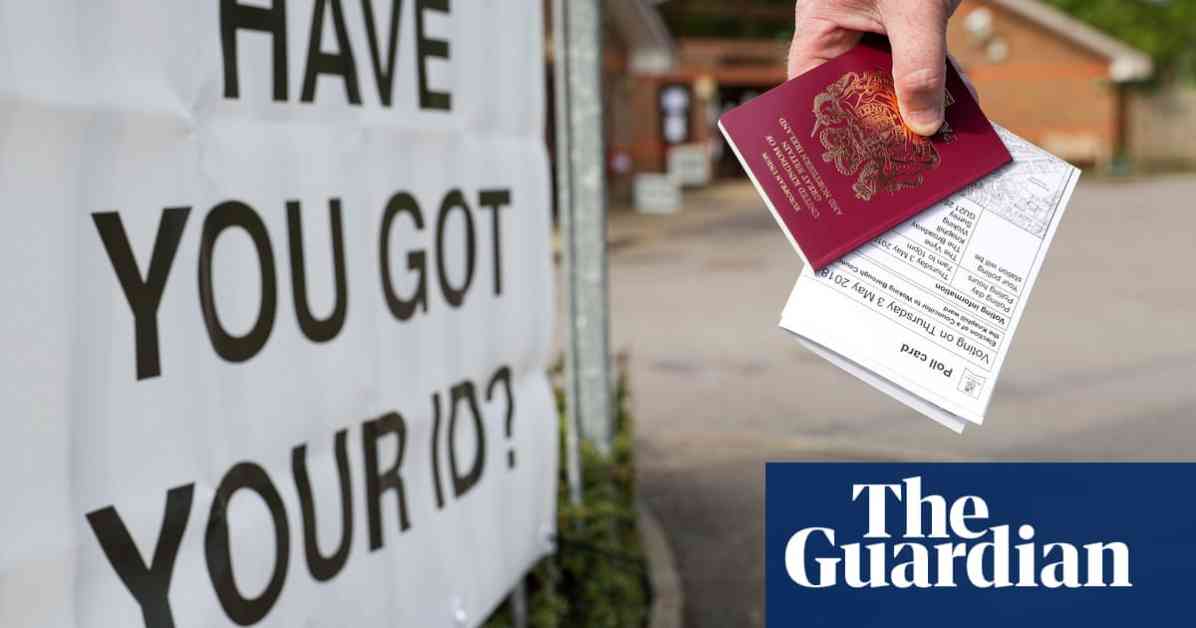Expanding Voter ID Options for Britons: Watchdog’s Recommendation
In a recent report, the Electoral Commission has recommended that ministers expand the list of acceptable forms of identification that people can use to vote in elections. This recommendation comes after a study found that as many as 750,000 people may not have voted in the 2024 general election due to a lack of the necessary documents. The report suggests that the government should also consider allowing individuals without proper ID to vote if someone with proof of identity can vouch for them at the polling station.
Challenges Faced by Voters
The study conducted by the Electoral Commission revealed that approximately 16,000 voters were turned away from polling stations during the 2024 election for not having the required ID. This amounted to 0.08% of the total number of people who voted. However, further polling indicated that a significant number of individuals did not even attempt to vote due to the ID requirements. When asked about their reasons for not voting, 4% cited a lack of ID. This number increased to 10% when participants were provided with a prompted list of reasons.
The report highlighted that the turnout for the 2024 election was the lowest since 2001, raising concerns about the impact of the new voter ID laws. The study found that individuals from more deprived social backgrounds were disproportionately affected by the ID requirements. Additionally, disabled individuals and those who were unemployed also faced challenges in meeting the ID criteria. While these disparities were not statistically significant, they underscored the potential barriers faced by certain demographics in exercising their right to vote.
Recommendations for Addressing Voter ID Issues
To address the challenges faced by voters, the Electoral Commission proposed several recommendations for expanding the list of acceptable forms of ID. One of the key suggestions was to include the Oyster photocard for students aged 18 and above in London, as well as nationally recognized cards such as the Jobcentre Plus Travel Discount card and the Veterans card. By diversifying the forms of ID accepted at polling stations, the commission aims to reduce the barriers faced by individuals who do not possess traditional forms of identification.
Furthermore, the report recommended exploring a system where individuals without the necessary documents could have someone vouch for their identity at the polling station. This approach would provide an alternative solution for individuals who are unable to meet the ID requirements on their own. Additionally, the report emphasized the importance of promoting awareness about voter ID rules and encouraging individuals to apply for voter authority certificates, a free form of ID that can be used for voting purposes.
Impact on Voter Turnout and Awareness
The study conducted by the Electoral Commission revealed disparities in awareness about the voter ID rules among different demographic groups. While 87% of Britons overall were aware of the ID requirements, awareness levels were lower among young adults aged 18 to 24 and individuals from minority ethnic communities. This lack of awareness could have contributed to the challenges faced by certain groups in meeting the ID criteria and exercising their right to vote.
In response to the report, the Ministry of Housing, Communities and Local Government reiterated the government’s commitment to strengthening democracy and ensuring that every legitimate voter can participate in elections. The government pledged to carefully evaluate the impact of the voter ID rules on voters and consider proposals to address any barriers to voting that may have arisen as a result of the new requirements.
Conclusion
In conclusion, the recommendations put forth by the Electoral Commission highlight the importance of expanding voter ID options to ensure that all eligible individuals have the opportunity to participate in elections. By addressing the challenges faced by voters who lack the necessary documents, the government can uphold the principles of democracy and promote greater inclusivity in the electoral process. It is essential that policymakers take into account the findings of the report and work towards implementing measures that facilitate voter participation while maintaining the integrity of the electoral system.












